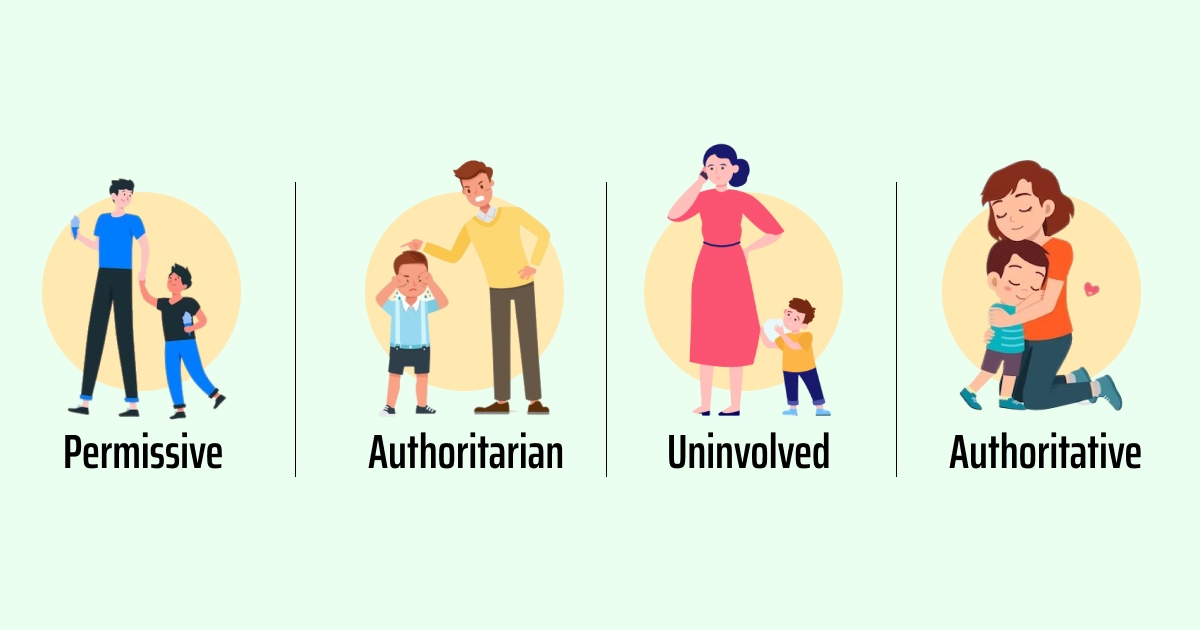It is quite common for us, as parents, to be in a difficult position of meeting our children’s needs without giving them too much. Nevertheless, there is a thin line between spoiling your child and caring.
Spoiled children can result in future emotional and behavioral problems that affect their coping capacity with life challenges. Detecting the signs you are spoiling your child is an initial stage in encouraging healthier practices.
The following are ten worrying signs you are spoiling your child. For each symptom, we will present a few suggestions on how to raise well-rounded, responsible, and understanding individuals.
10 Alarming Signs You Are Spoiling Your Child

Here are ten alarming signs you are spoiling your child:
1. Constant Demands
Does your child constantly make demands and expect instant gratification? This is one of the tell-tale signs you are spoiling your child.
If we never teach patience or empathy while giving in to all their requests, then we are telling them by example that each of their whims is a necessity rather than a privilege.
This over time could breed unrealistic expectations and frustrations when they do not get what they want; it’s also important to teach children that sometimes wants cannot be met immediately or at all.
This helps them develop such qualities as self-control, and patience with life which are necessary for survival skills.
2. Lack of Appreciation
If your kids do not say “thank you” often and think everything they own was just handed to them, it implies that they may not value anything. This lack of appreciation is one of the alarming signs you are spoiling your child.
We should foster gratefulness by making them aware of the effort behind their blessings. Spoiled children often do not realize the effort it takes to raise them.
This means explaining how much toil is put into taking care of them and teaching them how to identify and acknowledge people’s kindnesses. Small gestures like sending thank-you cards or verbally acknowledging appreciation can promote gratefulness.
By exemplifying gratitude in our actions, we help reinforce its importance and encourage our children to have thankful hearts toward persons and things around them.
3. Throwing Hissy Fits
Spoiled children usually have frequent tantrums when they do not get their way. Our children must be taught how to manage disappointments and that they are not always going to get whatever they want.
This entails setting definite limits and keeping them consistent even if this results in temporary annoyance or meltdowns. We make them understand the concept of boundaries by explaining the reasons behind our decisions calmly and remaining stern about them.
Additionally, providing positive reinforcement when they handle disappointment well can encourage better behavior. Eventually, children will learn that temper tantrums do not work and find healthier coping mechanisms for themselves.
4. Always Being Entitled
If your child has a sense of entitlement thinking that he or she should not be subjected to any rules, it may lead to serious problems later on in life. Being entitled at such an early age is one of the signs you are spoiling your child.
We must instill a sense of fairness and equality, helping them understand that they are part of a larger community.
Teaching them that everyone has responsibilities and privileges are earned not given is key. Also, engaging in activities that promote teamwork as well as sharing can go a long way towards reducing feelings of entitlementism.
Through treating everybody with respect as well as being an example we teach our kids the significance of humility plus considering others before ourselves
5. Avoiding Responsibilities

Do you have a child who resists doing housework or taking on any duties? If you are looking for signs you are spoiling your child; this is one of the most egregious of them all.
We fail to teach our children about teamwork and responsibility by refusing to make them contribute to the household.
Assigning chores suitable for their ages helps them appreciate hard work and understand the need to contribute towards family unity. It also equips them with skills required in future lives.
By transforming these into games and attaching little incentives, we can make it more fun. Repeatedly making them do home tasks creates a sense of obligation which makes them understand that everyone must help.
Read More: Teaching Responsibility To Kids: A Parent’s Roadmap!
6. Being Very Materialistic
Spoiled children are always after the latest gadgets, toys, or clothes as well as consider happiness equal to the possession of things.
To mitigate the signs you are spoiling your child try to teach your child that experiences and relationships are more important than possessions.
Through creative, imaginative activities and social interaction, this attention can shift from wanting more stuff.
Moreover, talking about money’s worth and why saving is important can assist them in being grateful for what they have.
7. Spoiled Children Are Always Being Crafty
If your child uses manipulation, such as crying and guilt feelings, and you give in it is one of the tell-tale signs you are spoiling your child.
We should set boundaries that our children must observe to let them know that manipulation cannot be used for communication purposes.
Being consistent with our responses even when it’s challenging is part of this effort. It also means teaching them better ways of expressing their needs and emotions.
For instance, we can stimulate them to explain their feelings through words instead of resorting to manipulation.
When we address manipulative action early enough by giving alternative communication strategies, we help our children develop healthy ways of relating and advocating for themselves.
8. A Lack of Empathy
A lack of empathy and self-centeredness is one of the signs of spoiled children. Empathy lessons will teach the children how to be kind to others. We may demonstrate empathetic conduct by showing care for others and talking about feelings openly.
Alternatively, charity work or helping those in need would serve as practical lessons on empathy too.
We inculcate a feeling of compassion and comprehension in them by instilling in our offspring concepts where they might perhaps think about other people’s emotions or viewpoints.”
These skills are important for forming healthy relationships and becoming compassionate adults.
9. Refusal to Share
A distaste for sharing toys or other playthings is among the signs you are spoiling your child. Sharing should be encouraged by us through showing and putting our children on occasions that demand giving.
This might involve arranging playdates that necessitate sharing or participating in community events where resources are shared among members. Praising and rewarding a child who shares reinforces the importance of sharing.
Also, talking about how good it feels to make others happy can make kids more prone to share willingly. This way, we help our kids realize the significance of being generous and cooperative when they are dealing with others.
10. Being Excessive In Their Own Lives
If you find yourself tying their shoes and solving their problems, you might be showing signs of spoiling your child. Allowing children to meet challenges and solve problems on their own enhances self-reliance and hardiness.
This means giving them space to do things themselves even though they may fail at first. Instead of taking over, offering guidance and support helps them learn as well as grow.
Encouraging them to take on tasks or responsibilities that are appropriate for their age makes them feel capable and confident enough to handle various situations independently.
Read More: 5 Subtle Signs of Toxic Behavior In Children And Tips To Deal With Them
How To Stop Spoiling Your Child?
Overindulgence and spoiling your child can lead to long-term behavioral and emotional issues.

Here are practical steps we can take to mitigate the signs you are spoiling your child and encourage healthier habits.
1. Set Limitations
The key to preventing spoiled children is by establishing and maintaining barriers. Children must know what is good behavior and what is not. Ensure that the rules are well understood and evenly applied.
2. Impatience Should Be Discouraged
Make your child understand how to wait. Not everything should be available immediately. Teach them about working for rewards through exemplary behavior or finishing tasks appropriately and they will learn that satisfaction often requires effort plus time.
3. Encourage Responsibility
Give the children chores that match their ages. This helps in making sure everything runs smoothly around the house, and at the same time enlightens kids about the necessity of being part of something bigger than oneself.
4. Train Kids on Gratitude
Encourage your child to show gratitude regularly. Simple actions such as thanking others or recognizing others’ efforts will help develop a sense of thankfulness within a child’s mind. Let them see why it’s important to be grateful and exhibit this in your character.
5. Reduce Material Gifts
Rather than investing heavily in material presents, concentrate on offering experiences instead. There is nothing wrong with desiring to buy our children latest toys or electronic devices but an over-focus on material items may lead them into feelings of entitlement.
By employing these tactics, we can ensure that our kids become well-rounded, accountable as well as have empathy for others. Remember it is never too late to make positive changes in guiding our kids toward healthier habits and behaviors.
Read More: How To Improve Your Child’s Behavior: 10 Effective Methods!
A Word From Mind Family
At Mind Family, we understand the challenges and joys of parenting. Spoiling our children often comes from a place of love and the desire to see them happy.
However, it’s crucial to recognize the signs you are spoiling your child and the long-term impact of overindulgence.
Remember, parenting is a journey, and it’s never too late to make positive changes. Implementing these strategies can transform your child’s behavior and ensure they grow up with the values and skills necessary to navigate the world successfully.
Let’s work together to create a nurturing environment that balances love with the essential lessons of life. At Mind Family, we’re here to support you every step of the way.
Frequently Asked Questions (FAQs)
What are the signs you are spoiling your child?
Constant demands, lack of appreciation, frequent tantrums, entitlement, avoiding responsibilities, materialism, manipulative behavior, lack of empathy, unwillingness to share, and excessive pampering.
How to stop spoiling your child?
Set clear boundaries, encourage patience, promote responsibility, teach gratitude, limit material gifts, model empathy, foster independence, create sharing opportunities, avoid bribes, and communicate openly.
Why spoiling your child is bad?
Spoiled children can lead to entitlement, lack of empathy, poor coping skills, and difficulty with responsibility and gratitude, affecting their long-term emotional and social development.


















Leave a Reply